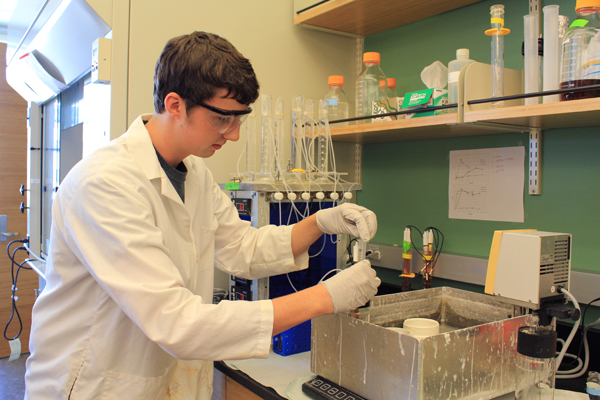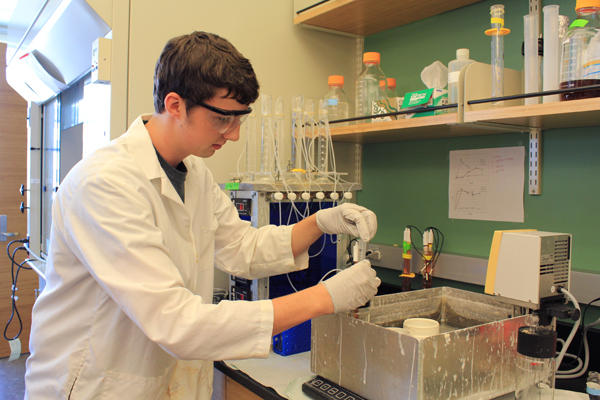
The National Science Foundation (NSF) recently gave ISU chemical engineering Assistant Professor Laura Jarboe and her team a $300,000 grant to produce biorenewable chemicals from bacteria and microalgae more efficiently in the presence of bio-oil.
This is Jarboe’s first major research grant. “I am delighted that we can develop a process that is so broadly applicable to society,” she said.
The goal of their project is to produce biorenewable chemicals from bio-oil, using microalgae and bacteria, in this case E-coli, as a catalyst. The microalgae, in one process, and E-coli in another, convert sugars in the bio-oil to hydrocarbons – a major energy source.
The accepted proposal was called “Biological Utilization of Thermolytic Substrates by Bacteria and Microalgae: Addressing Toxicity of Substrate Contaminants.” At this point Jarboe’s team need to develop ways microorganisms, like bacteria and microalgae, accept or become tolerant to contaminants in the bio-oil. If their strategy succeeds, the microorganisms will ferment sugars in the bio-oil more efficiently and produce more biorenewable chemicals.
Jarboe’s team includes Anson Marston Distinguished Professor Robert Brown, food science and human nutrition Associate Professor Zhiyou Wen, food science and human nutrition graduate student Yi Liang and chemical engineering junior Mark Deaton. They plan to acquire an incoming graduate student, postdoc research associate and another student assistant as part of this phase of the project.
Deaton analyzes Escherichia-coli, or E-coli, fermentation that produces biorenewable chemicals, like ethanol. “I like seeing quantitative results and am excited to be part of a project that works on a universal and useful scale.”
The 3-year grant goes into effect this January and is part of Iowa State University’s Bioeconomy Institute.
For more information on the project please contact Laura Jarboe at 515-294-2319 or ljarboe@iastate.edu.
PHOTO: Chemical engineering junior Mark Deaton analyzes E-Coli in bio-oil at ISU’s Biorenewables Research Laboratory. The E-Coli converts sugars in the bio-oil to hydrocarbons – a major world energy source. Deaton is part of a research team led by Laura Jarboe, assistant professor in Chemical and Biological Engineering, who recently received a $300,000 NSF grant. This grant helps the team produce ways microorganisms, like E-Coli and microalgae, process sugars more efficiently by accepting or becoming tolerant to contaminants in the bio-oil.
